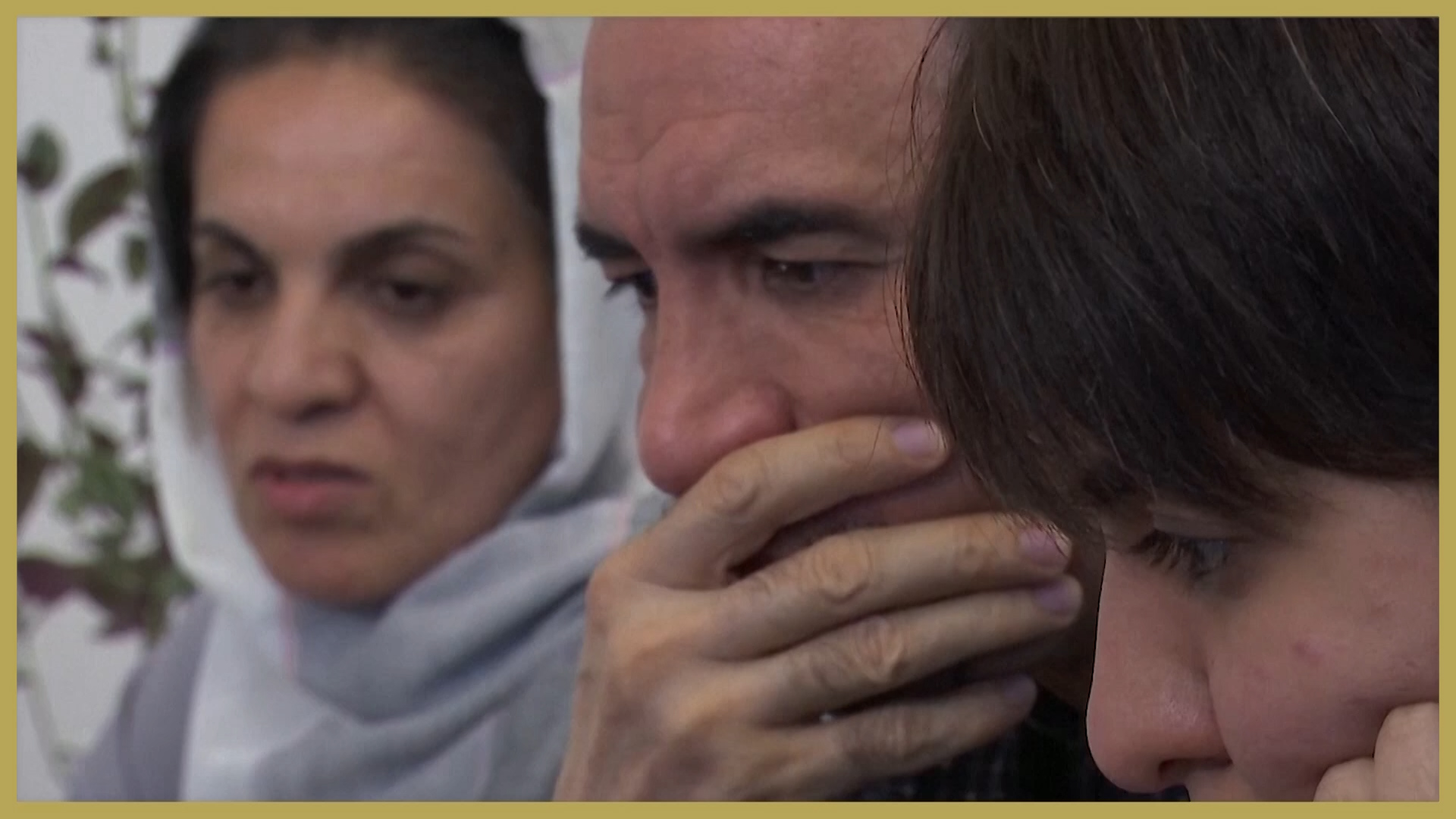03:03

In Germany, thousands of miles from Kabul, resettled Afghan families cannot fathom what's happened to their homeland.
"We fought for everything, for all of these laws and policies, these reformist policies and now we are back at the starting point," said Zia Moballegh, an Afghan refugee living outside Berlin.
He was at a loss for words as he watched Taliban leaders give official interviews on national news channels that once represented an open society with a free press.
Since the taking of the Afghan capital by the Taliban on Sunday, the Moballegh family sees that as a distant memory. They now worry about friends and family who are stuck living under Taliban rule.
"I cannot help them and that bothers me a lot, but I try to talk to them and to find out if they are still alive as that is the least I can do," said Aida Moballegh.
The family came to Germany four years ago under a resettlement program run by the German government. Zia Moballegh began receiving death threats because of his work for a German non-governmental organization in Kabul.
Though they are one of tens of thousands of Afghan households resettled by authorities, they still say they feel incredibly blessed to be given the opportunity.
Calls have grown for similar a amnesty to be extended to the thousands desperate to flee Taliban-controlled Afghanistan. And desperate scenes have emerged at Kabul's Hamid Karzai International Airport, with hundreds clinging to flights heading abroad.
However, it's unlikely Germany will accept a large arrival of refugees as it did in 2015 when Chancellor Angela Merkel allowed more than a million people from war-ravaged countries to settle in Germany.

A family at Frankfurt International Airport talking to the press. They were part of the first group of people evacuated from Kabul. /AFP/ Armando Babani
A family at Frankfurt International Airport talking to the press. They were part of the first group of people evacuated from Kabul. /AFP/ Armando Babani
The decision has had a lasting impact on German politics, with far-right parties seeing a boost in voter support in the following years. They argue that the country has become a "top destination" for asylum-seekers.
The tolerance of Merkel's party in 2015 does not extend to today. The CDU party leader hoping to succeed her told reporters on Monday that the door would remain closed.
"2015 must not repeat itself. We need an orderly protection for those who are heading towards Europe," said Armin Laschet, the CDU candidate for Chancellor.
The CDU is not a certainty in this election cycle, as it has been previously. An increasingly prominent Green Party has called for a dramatically different approach to the crisis.
"It shouldn't be about 'what does this mean for us in Germany?' It should be about 'how can we rescue as many people as fast as possible?'" said Ricarda Lang, the deputy chairperson of the Green Party.
Recent polling suggests the Greens could lead a government or coalition when the parliament is re-elected in late September. It's the first time the party has had enough voter support to potentially play a major role in government.
Until voters go to the polls on September 26, foreign policy remains the responsibility of Merkel. She says that up to 10,000 people will be evacuated to Germany and has promised the Afghans who helped the country will be given the resources to start a new life.

